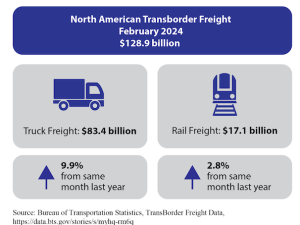"This innovation is intended to simplify and accelerate processes for Volkswagen, a key account for DB Schenker. These transport boxes are highly flexible and enable novel solutions, both in terms of the transported volumes as well as upstream and downstream cross-modal loading and unloading processes," comments Axel Marschall, Head of Automotive at DB Schenker Rail GmbH.
The boxes, which resemble containers, offer an inside loading height of three meters, which means sufficient space for the loading racks used in the automotive industry, whereas conventional containers have a loading height of just 2.69 meters. The boxes can hold up to 26.5 tons of material and can be transshipped either by cranes or mobile handling equipment. This means they can be transferred from the standard Central European gauge to the Russian wide-gauge carrying wagons without delay by the existing crane facilities. The boxes are available in two different versions: curtain siders with movable side panels and Wingliners, with hydraulically operated side panels. The curtain sider also has a lifting roof. Both boxes can be loaded from the rear and they can be stacked in two tiers.
DB Schenker Rail already supplies assembly sets to the Kaluga automotive location 150 kilometers south-west of Moscow. The parts are taken to Kaluga from the Czech Republic, Slovakia and Germany for assembly.
In the second development stage, the Kaluga plant will be expanded to include a body shop, paint shop and final assembly. This means a radical change in the demands made on the automotive experts: in future, the assembly sets will have to be supplied to the plant as individual parts and modules, and delivered straight to the assembly lines.








